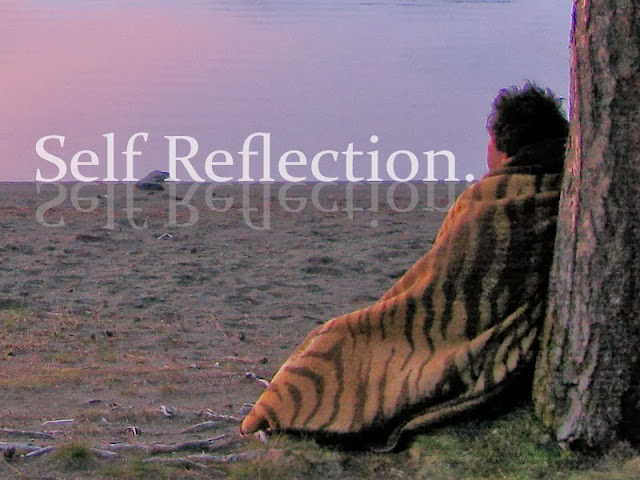One of the most common explorations of spiritual practitioners is the search to uncover a 'true self,' hoping for an answer to the question "who am I?" It's the ongoing attempt to discover a lasting identity beneath all the behavioral masks we've worn in the crusade for social acceptance, adaptation and survival. An underlying personality that predates all the roles we've performed, the characteristics that developed over time. We may believe that if we can find what creates all the inner chatter, we can gain some control over ourselves.
Yet the Buddha taught that the pursuit for a true, unique self was a misguided and wasteful quest (for example, the Ananda Sutta, SN 44.1). Why? In attempting to define a "self," (as opposed to an "other") we inevitably wind up attaching to certain tendencies that provide a continuing sense of uniqueness, while excluding other traits that we may experience but don't deem personally ours. If I believe "At the core, I'm smart and caring" then my inevitable moments of ignorance and self-centeredness—and we all have them at times—will cause confusion, not to mention agitation. If I conclude that "I'm an angry person" then moments of serenity and peace must be discounted, even though they are a part of life as well. Whatever we point to as "mine," and feel inclined to own, creates the need to disclaim something else as not "not me." Yet to have a human mind is to live in a cascading flow of vastly incompatible thoughts, moods and emotions. In the quest to define ourselves, we find ourselves often in denial of what we don't like; a stress of filtering out what's inevitable and human results.
Conversely, in the Water-Snake Sutta (MN 20), the Buddha ridiculed any belief in a completely interconnected, "i am the cosmos" idea of self as well. The universe is in constant change; there's nothing to attach to as a "me." Moreover, if I completely identify with everyone and everything, without maintaining separation, then my chances for peace of mind would decrease drastically. Everyone's suffering and missteps would be a felt part of my experience; any chance for peace of mind would be impossible. This is why equanimity—knowing when to let go of empathic connection and identification—plays as core a role in the dharma as compassion; failing to maintain some emotional boundaries leads to misery, not awakening.
The Buddha believed the question "Who am I really?" in general leads to needless suffering and stress, and he refused to answer it when Vacchagotta, a wandering practitioner, repeatedly asked the question; there was no satisfactory or useful reply.
Rather than getting caught up dividing our experience (thoughts, moods, feelings, etc) into "what's really mine" and what's not mine, the solution lies in viewing life in simpler terms: what causes suffering and what leads to its cessation. When we see that avoidance, for example, leads to needless suffering and isolation, we don't need to diagnose or pathologize ourselves as "avoidant" or "dismissive" to override the urge to run from conflict. Proclaiming ourselves as "avoidant," in fact, makes it harder to change. Seeing that avoidance leads to suffering, we move against it; adding a belief about our identity is wholly unnecessary. We don't need to view any thought as "mine" or "not mine," but rather in terms of "this will develop happiness" and "this will make me miserable" in the long term. And so we no longer need to worry about who's experiencing life, but rather how to make the experience as peaceful and harmless as possible.

Comments
Post a Comment